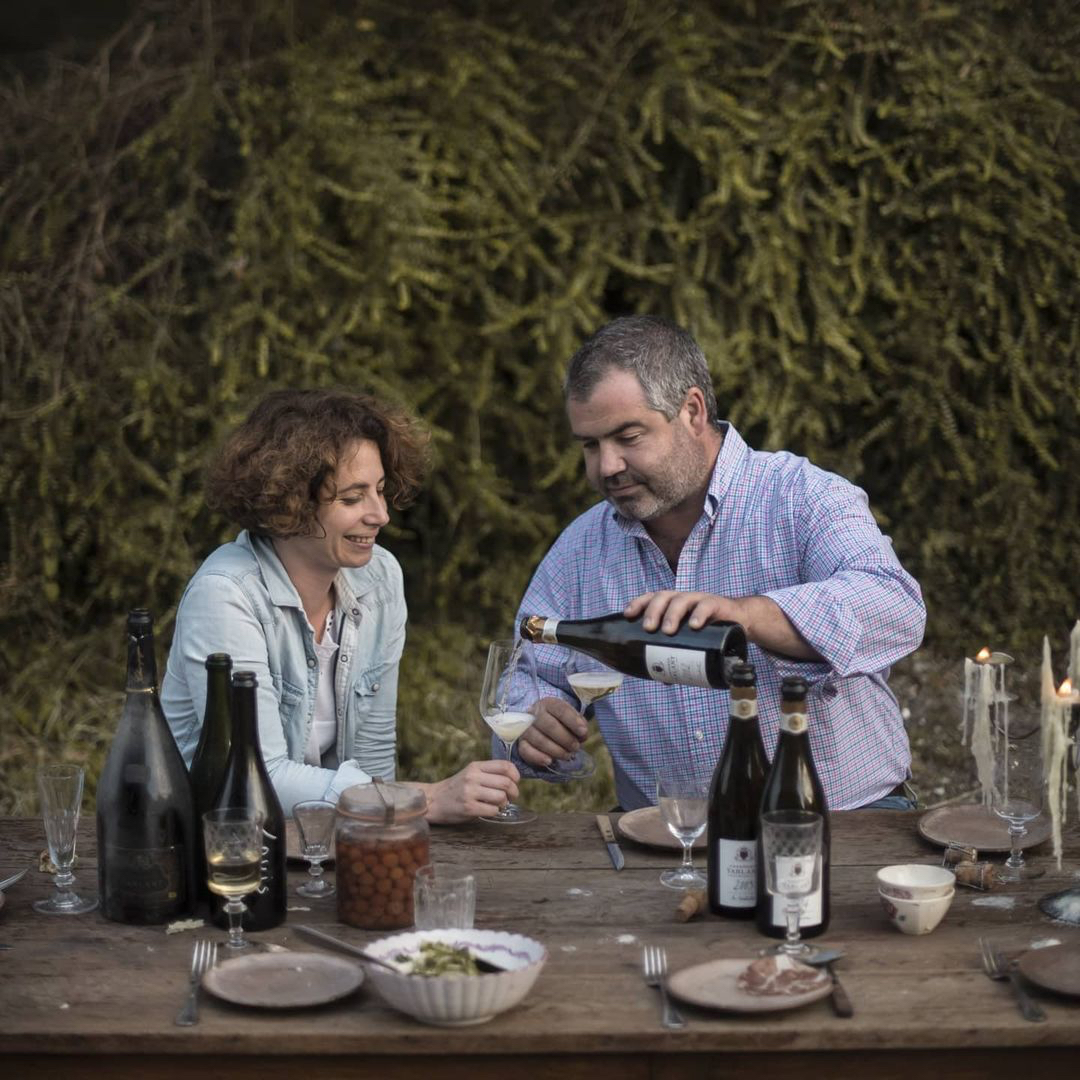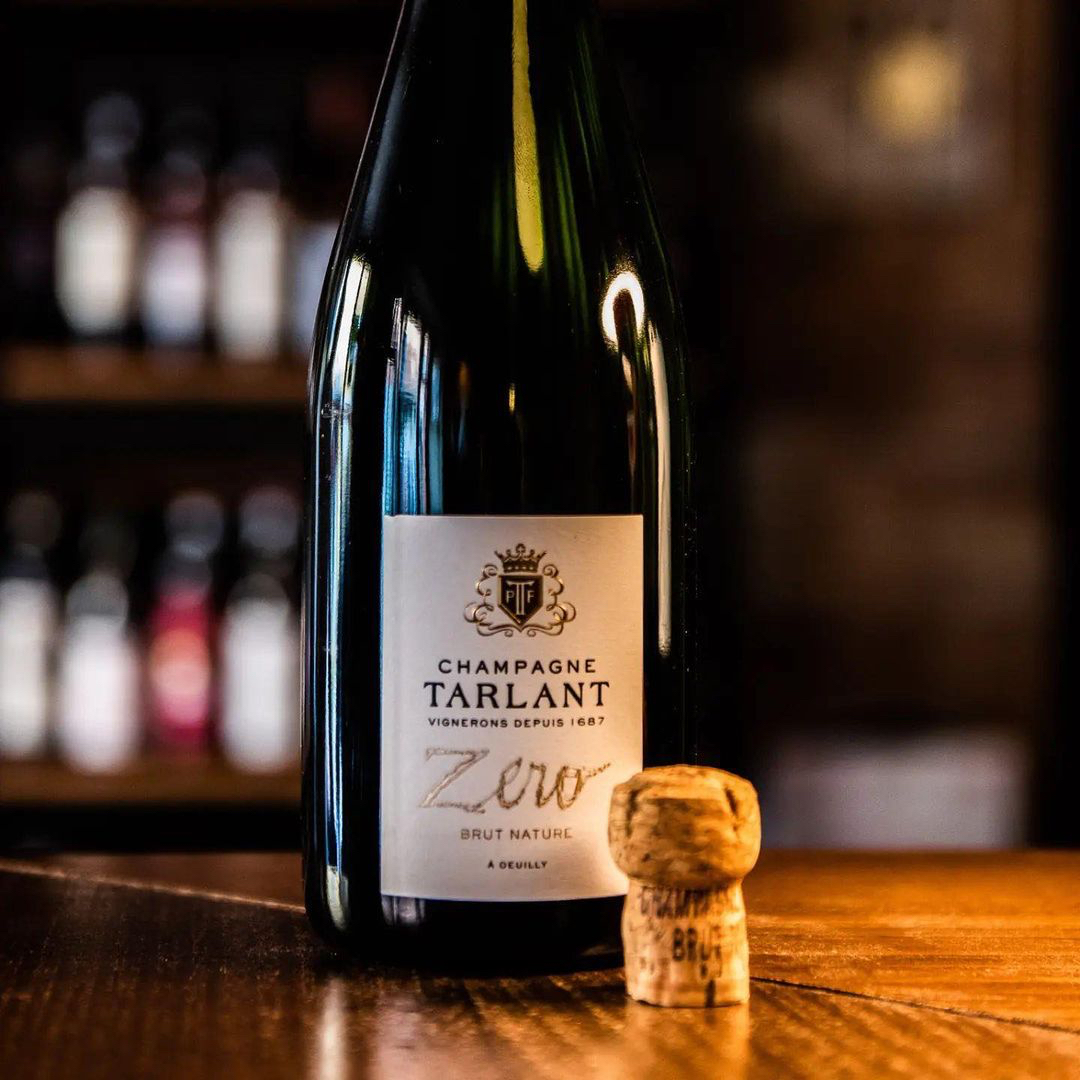|
In the last part of our Champagne Weeks today we are talking about our Top winery from the Champagne region - Tarlant.
|
|
|
|
|
|
Champagne Tarlant
|

|
|
|
|
|
The family winery Tarlant is currently run by siblings Benoît and Melanie. However, the tradition goes back to over twelve generations back. The Oeuilly site is located in the Vallée de la MarneThis is the absolute land of the Black Riesling. But it is not Pinot Meunier but Pinot Noir and a little Chardonnay that the Tarlants are fond of.
|
|
They also cultivate small quantities of Arbanne, Pinot Blanc, Petit Meslier and Fromenteau, as well as the Pinot Meunier that is common in the valley. As a member of the Terres et Vins association, the focus of their production is on Champagne with a strong character and a specific origin.
|
|
55 vineyard plots
|
These grape varieties grow organically and close to nature on a total of 55 plots. Each plot is harvested individually and vinified separately. Around half of the base wines are matured in wooden barrels. The barrique barrels come from Burgundy and are regularly exchanged for new barrels. None of the base wines undergo malolactic fermentation. The aim is to offer a concise acidity as a counterpart to the powerful style from the wooden barrel.
|
|

|
|
Alchemy in the champagne cellar
|
After the maturation of the base wines, the most exciting part follows in the cellar: the cuvée. Similar to a great chef or perfumer, you follow recipes but keep an eye on the soul of the source material. The aim is, on the one hand, to enhance the flavour of a certain wine, such as Brut Traditionyear after year. Or, on the other hand, to work out and realise an interpretation of the vintage, its peculiarities and characteristics in the case of the single-vineyard wines.
|
|
|
No dogma
|
The large number of parcels and the resulting base wines enable Benoît to develop or realise this recipe in the cellar. The sparkling wines from Tarlant are bottled for second fermentation with little dosage. Depending on the wine, between 0 - 8 g are used, so that the wines are labelled as Brut Nature, Extra Brut or Brut. Particularly noteworthy here is the straightforward Tarlant Zero Brut Nature and the Top Cuvée Louis from 70-year-old vineyards.
|
|

|
Extra long yeast storage
|
|
After the second fermentation in the bottle, the wines are aged on the lees for a very long time in the cellar. The number of bottles in the cellar is considerable. Top wines such as the Vigne d'Antan from very old Chardonnay vines or the Cuvée Louis are aged on the lees for well over ten years. The intensity and expressiveness is simply phenomenal. Also worth emphasising is the Cuvée BAM! from the rare grape varieties Meslier, Arbanne and Pinot Blanc.
|
|

|
|
|